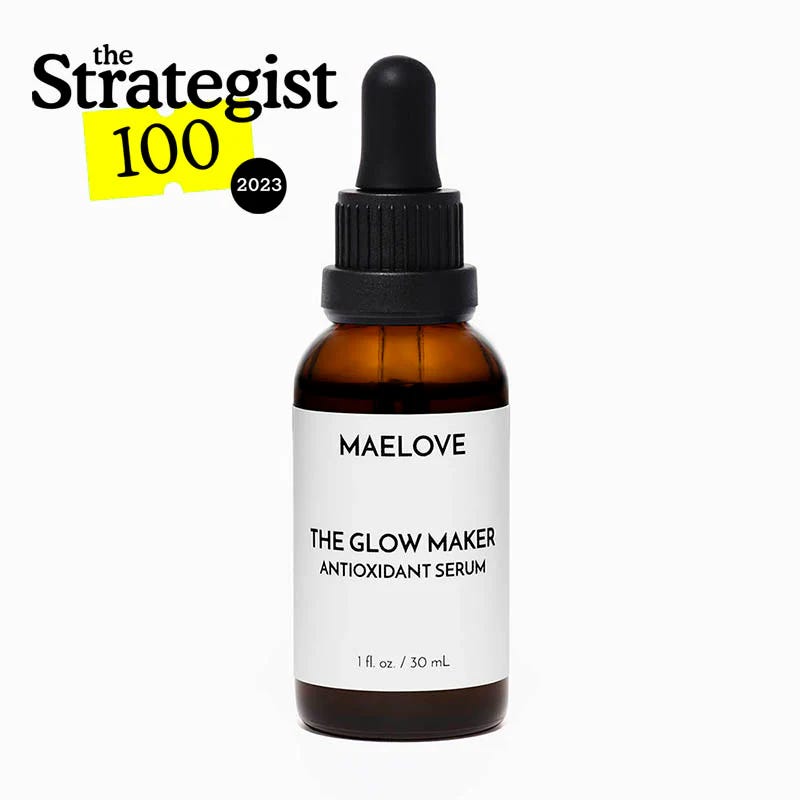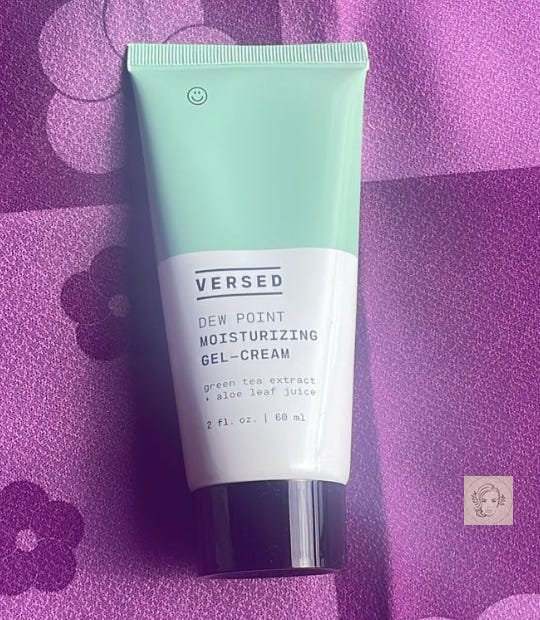Are Antioxidants Really Fighting Aging? Here’s What the Science Says
On Harnessing the Power of Antioxidants for Healthier Skin
You’ve heard that you should be having a daily glass of wine for the antioxidants, right?
Well, I’m pretty anti-alcohol on the aging front, but I do believe that antioxidants are the unsung heroes of skincare.
If you're serious about maintaining a youthful complexion and shielding your skin from environmental damage, incorporating antioxidants into your routine is essential.
So today, I want to dive into the science behind these powerful compounds and discover how they can help you achieve radiant, healthy skin.
Understanding Free Radicals
Free radicals are unstable molecules that wreak havoc on your skin by causing oxidative stress.
These molecules are missing an electron, making them highly reactive.
In their quest for stability, they steal electrons from healthy skin cells, leading to cell damage and the breakdown of vital components like collagen and elastin.
Sources of Free Radicals
Free radicals originate from various sources, including UV radiation from the sun, pollution, smoking, and even stress.
Daily exposure to these elements can accelerate the aging process, leading to wrinkles, fine lines, and a premature loss of skin elasticity.
Understanding and combating free radicals is essential for maintaining healthy skin.
How Antioxidants Work
Antioxidants neutralize free radicals by donating an electron, effectively stabilizing them and preventing them from causing further damage.
This process helps to protect your skin cells, preserve collagen, and maintain a youthful appearance.
Common Antioxidants in Skincare
Vitamin C: Known for its brightening properties and ability to boost collagen production. We also love vitamin C for its ability to control uneven melanin production, thereby smoothing our skin!
Vitamin E: A powerful moisturizer that also protects the skin barrier.
Ferulic Acid: Enhances the stability and effectiveness of other antioxidants.
Green Tea Extract: Soothes the skin and reduces inflammation.
Niacinamide: Improves skin elasticity and reduces discoloration.
Benefits of Antioxidants for Skin
Antioxidants offer a multitude of benefits for your skin.
They reduce inflammation, prevent premature aging, and brighten your complexion.
They also provide specific advantages depending on your skin type and concerns.
Reducing Inflammation
Antioxidants like green tea extract and niacinamide are known for their anti-inflammatory properties.
They help to calm irritated skin and reduce redness, making them ideal for sensitive skin types.
Preventing Premature Aging
By neutralizing free radicals, antioxidants prevent the breakdown of collagen and elastin, which are crucial for maintaining firm, youthful skin.
Brightening Our Skin
Antioxidants like vitamin C can brighten your complexion by reducing hyperpigmentation and promoting an even skin tone.
They inhibit the uneven production of melanin, the pigment responsible for dark spots and uneven skin tone.
Top Antioxidants in Skincare
Let's take a closer look at some of the most effective antioxidants you can incorporate into your skincare routine.
Vitamin C
Vitamin C, or ascorbic acid, is a potent antioxidant that brightens the skin, boosts collagen production, and provides UV protection.
It’s a lifeline for those of us looking to improve our skin’s radiance and firmness.
Studies have shown that vitamin C can significantly reduce the signs of aging and improve skin texture.
If you're interested in learning more about Vitamin C, check these articles: 10 Vitamin C Serums You Should Know About, How Long Does Vitamin C Serum Last? A Comprehensive Guide, & 16 Best Vitamin C Serums for Hyperpigmentation.
Vitamin E
Vitamin E is known for its moisturizing properties and ability to strengthen the skin barrier.
It works well in combination with vitamin C, enhancing its effectiveness.
Research indicates that Vitamin E also provides protection against UV damage and can reduce the formation of free radicals after UV exposure.
Ferulic Acid
Ferulic acid is often used in conjunction with vitamins C and E.
It helps to stabilize these antioxidants, making them more effective.
Research indicates that ferulic acid can double the photoprotection offered by vitamins C and E alone.
Green Tea Extract
Green tea extract is rich in polyphenols, which have strong antioxidant and anti-inflammatory properties.
It helps to soothe the skin, reduce redness, and protect against UV damage.
Studies have demonstrated its efficacy in reducing oxidative stress and inflammation.
Niacinamide
Niacinamide, also known as vitamin B3, is a versatile antioxidant that improves skin elasticity, enhances barrier function, evens skin tone, and diminishes dullness.
Suitable for all skin types, studies have shown it can also reduce the appearance of fine lines and wrinkles.
Product Recommendations
Here are some top antioxidant-rich products to consider, tailored to different skin types:
For Oily Skin
MaeLove Glow Maker: A lightweight vitamin C serum that absorbs quickly without leaving a greasy residue.
Medik8 C-TETRA: A niacinamide serum that helps control oil production and reduces the appearance of pores.
For Dry Skin
Versed Dew Point: A rich moisturizer with vitamin E and green tea extract to hydrate and soothe dry skin.
Niod Multi-Molecular Hyaluronic Complex: A hydrating serum with hyaluronic acid and ferulic acid for added antioxidant protection.
For Sensitive Skin
SkinCeuticals C E Ferulic Serum: A gentle serum with green tea extract and ferulic acid to calm and protect sensitive skin.
Korres Greek Yogurt Cream: A soothing moisturizer with aloe vera and niacinamide to reduce redness and strengthen the skin barrier.
How to Incorporate Antioxidants into Your Routine
Incorporating antioxidants into your skincare routine can seem daunting, but with a few simple steps, you can reap their full benefits.
Step-by-Step Guide
Cleanse: Start with a gentle cleanser to remove impurities.
Antioxidant Serum: Apply an antioxidant serum (e.g., vitamin C) in the morning.
Hydrating Serum: Follow with a hydrating serum (e.g., hyaluronic acid) to lock in moisture.
Moisturize: Use a moisturizer that complements your serums and provides additional antioxidant benefits.
Sunscreen: If you’re open to using SPF, you can finish your morning routine with a broad-spectrum sunscreen.
In the evening, consider using a different serum to address specific skin concerns and support skin repair. For example, I often use a vitamin C serum in the morning but use tretinoin and copper peptides in the evening.
My advice: Consistency is key. Use antioxidant products daily to protect your skin and enhance its overall health. Adjust the frequency and combination of products based on your skin’s response.Potential Side Effects and Precautions
While antioxidants are generally safe for most skin types, it’s important to be aware of potential side effects.
Possible Side Effects
Vitamin C: May cause irritation or redness in sensitive skin. Start with a lower concentration and gradually increase as your skin builds tolerance.
Niacinamide: Rarely causes irritation but can sometimes lead to flushing. Patch test before incorporating it into your routine.
Precautions
Always patch test new products to ensure they don’t cause adverse reactions.
Avoid using too many active ingredients at once as this can overwhelm your skin.
Conclusion
Antioxidants are a vital component of a comprehensive skincare routine.
They protect your skin from free radical damage, reduce inflammation, and help prevent premature aging.
By understanding the science behind antioxidants and incorporating them into your morning routine, you might just find the holy grail you’ve been looking for all along.
Here’s to harnessing the power of antioxidants for your best skin yet!
Cheers,

























Can we collaborate?